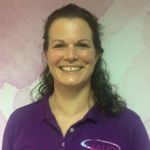
25 Feb Mindfulness
I often discuss using Mindfulness with patients as a strategy to help clarify thoughts, deal with pain and ease day to day life stresses. But, what do we actually mean by ‘mindfulness’?
There are many resources on line on this topic and shops are stacked with self-help guides. Often it is hard to go through all this information, know what is correct and understand how to use this technique.
I myself attended an 8-week Mindfulness course six years ago to find out more about how to use this practice, and still attend a monthly ‘catch up’ with my fellow course participants, as well as utilising the ‘headspace’ app for daily practice; the difference using this approach has made for me personally has been profound.
As a physiotherapist who has a special interest in Women’s Health, breathing disorders and chronic pain, I believe that Mindfulness is an integral approach to consider when devising a treatment and management plan for patients.
My passion is such that I have complied a brief overview to introduce Mindfulness to you and for you to consider whether this principle is worth exploring further.
Mindfulness – a brief overview
Mindfulness originally stems from Buddhist meditation traditions. Since the 1990’s this meditation has been used to help deal with many mental and physical health conditions. It is typically described as;
‘non-judgemental, attention to experience in the current moment’
The practice teaches us attention control, regulation of emotion and self-awareness. The key word here is PRACTICE. This is a skill, that we learn, cultivate, repeat and keep going. There is ample evidence from research to show changes in core brain regions after mindfulness meditation.
It can be easy to rush through life without stopping to notice much therefore paying more attention to the present moment – to your own thoughts and feelings, and to the world around you – can improve your mental and physical wellbeing.
Becoming more aware of the present moment can help us enjoy the world around us more and understand ourselves better. When we become more aware of the present moment, we begin to experience afresh things that we have been taking for granted.
Mindfulness encourages us to deal with the issues that we find hard to let go, and in doing so, we can deal with them more productively. Ask yourself this simple question, ‘Is trying to solve this by brooding about it helpful, or am I just getting caught up in my thoughts?’
How does Mindfulness actually work?
Research has shown that Mindfulness affects both the sympathetic and parasympathetic nervous systems. This refers to our ‘fight or flight’ stress response, which is a perfectly normal stress response but sadly, if our hormone levels associated with this response remain elevated they can have an effect on our psychological, metabolic and immune systems. Mindfulness meditation has been linked to significantly lowering one of the raised hormones called cortisol; thereby suggesting that it can lower stress and may decrease the risk of diseases that arise from it.
I use Mindfulness to familiarise my patients with the parasympathetic nervous system, or the ‘rest and digest’ principle. This system concerns the state of equilibrium of the body. Mindfulness encourages all the positive effects this system has on our body.
Do you have to sit and meditate? No!
There are many ways to be mindful. For instance, in my Pilates classes, we actually practice ‘mindful movement’ all the time. Many people use the practice day to day to become more aware of the moment, smells, sounds and feelings. You may try sitting and listening to guided practices, or join a group or a course. Some people benefit from reading about the technique. The good news is, you are already doing all you need to do. You are breathing! And so we use the breath, the pace of it, our awareness of it, to anchor our thoughts. No other equipment is required!
Mindfulness courses I recommend to patients run regularly at Castle Farm Recreation Centre in Kenilworth. Updates about these courses can be found on Facebook by clicking here

Blog compiled by Deborah Thomas, Senior Physiotherapist at Halo



No Comments